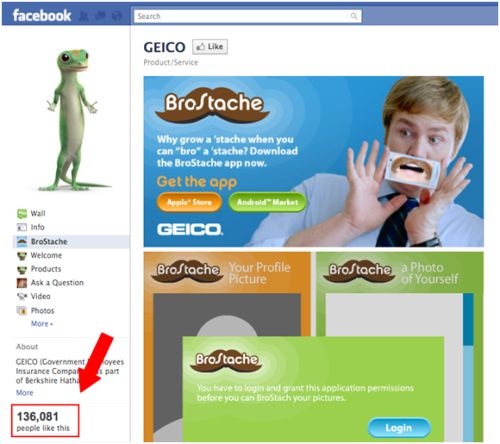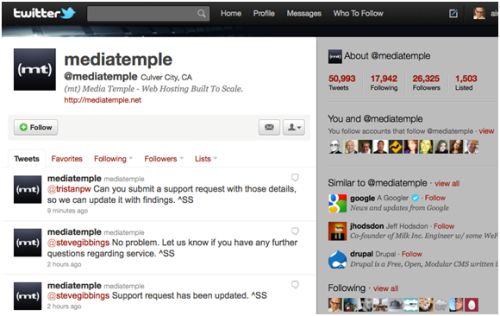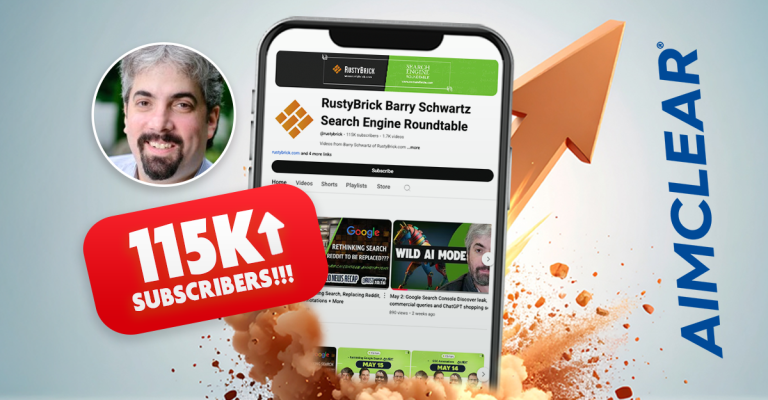
From pharmaceutical mega-corporations, attorneys, and health care purveyors to insurance companies and universities, skittish B2C and B2B online marketing managers operating in regulated industries are still afraid to participate in social media. Other unregulated companies, led by old school PR-adverse managers, self-restrict to a ridiculous extent out of paranoia, misunderstanding or ignorance. Such are the realities of the micromanaged marketer, some of whom need to (literally) get every tweet and Facebook post approved by legal. This article offers proven social media tactics to navigate even the most onerous industry regulations and/or paranoid managers.
Imagine the business phone ringing for years, and not ever answering. If dozens of people loudly knocked on your company’s door every single business hour, would you overthrow your manager for never answering? If compliments, complaints, suggestions, lunatic rants and referrals rolled across your fax machine on a daily basis, would you ball them up unread, shred and recycle? Would it be prudent to ignore incoming email from customers… forever? Not participating in social media is akin to these examples.
So what gives? What first steps can online marketers take to bridge the gap from radio silence to prudent participation? Is there a business case to be made for taking the risk to begin social media participation past monitoring and broadcast-only feeds? Perhaps more importantly, what happens if your business decides not to?
There are a number of safe tactics regulated businesses can successfully undertake, with little or no danger.
Pre-approved “Dialog” Bytes For “Conversations”
This tactic works wonders to help remove community managers from the shackles of rampant micromanagement, whatever the source. Simply build out a big bucket of pre-approved conversational bytes that appear to be spontaneous but are actually canned. Armed with these bytes, hearing: “You are not allowed to say anything else without approval,” from a micromanaging boss is, well, more manageable.
You might be surprised how deeply and flawlessly prefab’ bytes can resonate. Plug these little fishies into most any conversation that arises and take note of how natural it sounds:
- “Thanks, glad you liked it”
- “I understand, thanks for reaching out”
- “What do you think?”
- “What would you like to see happen?”
- “I can tell you’re upset about this.”
- “Great, thanks for stopping by.”
If you make the bucket big enough, this tactic works really well for handling angry people in particular. Think of pre-approved dialog bytes as the mechanism for shepherding pissed off users out of the public eye. Build out approved verbiage to guide users to the appropriate support channel:
- “I can help you with that.”
- “Our expedited customer support number for Facebook users is…”
- “Here’s the link to submit your claim –> [link]”
- “Yes, there is currently an outage in [City].”
Make Big Fun
One giant misconception, common to executive micromanagers who torture marketers, is not grasping the difference between what is regulated and what is not. For instance, tweeting directions to the parking garage at Mayo Clinic does not fall under the auspicious of HIPPA privacy rules. Providing an amortization calculator for community members who “Like” your Facebook page does not violate insider-trading rules and relegate your financial institution to Wall Street hell.
I love this example from GEICO. In the United States, the insurance industry is one of the more heavily regulated categories. Last time I checked, supporting users in creating fake mustaches does not break any rules!
Pre-approved Mainstream Sharing Sources
This tactic is a permutation of the pre-approved sharing bytes. Nearly every business can point to a handful of online resources that they (A) consider definitive authority sources and (B) won’t get anybody into any trouble. For instance, sticking with the financial product category, it’s hard to imagine content emanating from the Washington Post’s business/market pages getting anybody into trouble. If your managerial team is suffocating social media marketing efforts, try getting sources for sharing approved, all the way down to the feed level.
Non-regulated Content & Discussion
Check out the Yahoo! portal or WSJ on any given day, and marvel at the execution of their content strategy. “One-Hit-Wonder Entrepreneurs: Where Are They Now?” is a fabulous example of content that won’t cause any problems. Again, understanding the difference between what is regulated and what is not is the key.
What Can You Do For Your Customers?
At the end of the day, the best social media is all about serving customers better and more efficiently. We’ve all been stuck on hold in a call queue, waiting way too long for the technician to take the line. Often, we stew in our own bile, because the reason for the call is a downed website, malfunctioning phone or other essential matter that is ruining our day. I love the way MediaTemple handles customer support using Twitter for their web hosting service. Contacting MediaTemple via Twitter gives troubled users an edge. The community manager will check your spot in the queue, suggest things to try and offer workaround solutions. The point is that for the Twitter-savvy, help happens now, customer support at the speed of social media.
Making the Business Case
There are any number of reasons to be in social media, aside from the obvious. For hard core bosses, look to the business advantages.
- Dilute the CPM of Paid Branding: That’s right! Organic networking certainly can defray the cost of making a product or services more known to the masses.
- Serve Customers Better: Happy customers often buy more stuff, recommend the brand to their peeps, and come back for more themselves. Measure sales correlated to social media activities. Ultimately better customer service will result in less people who dislike your company. Reciprocally more people could like your company.
- SEO in Search & Social Channels: There are so many ways that social media participation results in better organic prominence these days. Start with Google and Bing’s socially mashed SERPs and go from there. There’s no question that being present in the contextual flow of channels, including YouTube, Facebook, Twitter, StumbleUpon, forums, and FourSquare can result in friends, followers and ultimately sales. Hey, that’s SEO too!
What Happens If You Don’t?
Look, professional marketers know that there are harsh regulations governing how things can be presented in many industries. However, most users are not in tune with regulations that govern many industries’ advertising. Therefore, the regulated marketer faces the challenge of being compared to other unrestricted brands who run social media promotions from conversational tweets to giant contests.
To the prolific Twitterer used to receiving responses from unregulated brands, failure of an insurance company to respond to an urgently tweeted complaint will feel like shouting into an empty cavern. This will likely exacerbate frustration at not being heard. The YouTube user who did a humorous remix of your brand’s flagship television spot and got 1.2 million views, may be put off at the cease and desist letter or YouTube take-down notice.
We live in an era where a single engaged evangelist could destroy or totally empower a new or established company’s reputation. Not participating in social media means that seemingly credible but deceptive false information can spread like wildfire, causing untold damage to your firm’s reputation in public and private quarters. Not engaging can mean a cornucopia of missed opportunities to promote your own reputation by propagating the glowing things that users say in support or praise of customer service efforts.
Honor your industry’s crucial regulations, but don’t throw the baby out with the bathwater. Just because there are cannons, laws, ethics, or internal policies that limit what a regulated marketer can say in public, does not mean that businesses must go radio silent.
Related Posts:
One Social Media Tactic Your Business Must Embrace
Nine Essential Tactics For Reputation Management In Social Media
6 Superb First Social Media Tactics For Businesses
Reputation Management Crises? 8 Crucial Priorities
Reputation Crises Management: 8 SEO Triage Tips
The Community Manager’s Guide To Intra-Community Bloodshed
Facebook Community Triage: Do’s & Do Not Do’s
Pruning Facebook Pages: When to Remove Comments & Ban Fans
Cover Your Assets: How To Prepare For Social Community Meltdowns
Conflict or Crisis? The Community Manager’s Dilemma Decoder Ring
Marty Weintraub, author of “Killer Facebook Ads” (Wiley/Sybex 2011), is CEO of AIMCLEAR®, an online marketing agency that has managed Facebook ad campaigns generating over 10 billion impressions internationally. Client credits include MarthaStewart.com, Siemens, Second Life, Budget Direct, and other global brands.










